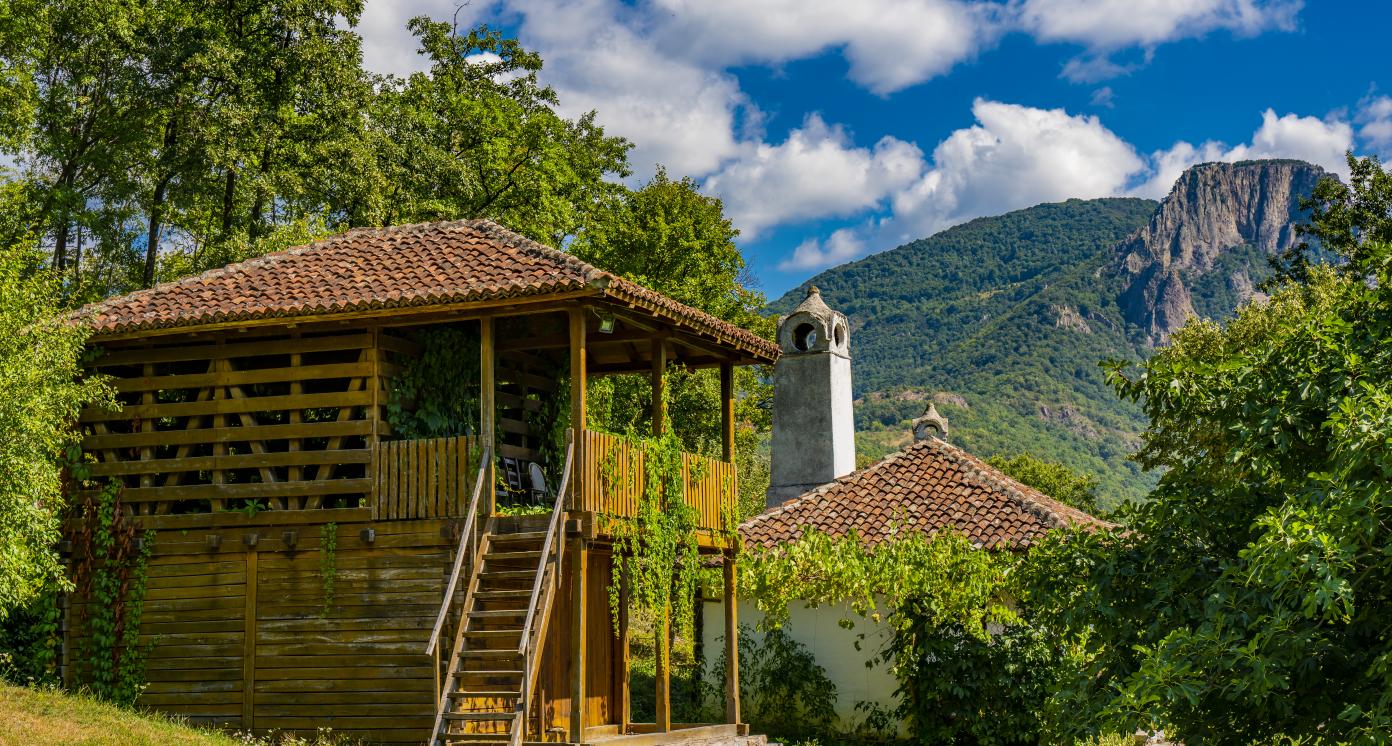Rural guesthouse upgrades with eco-friendly amenities
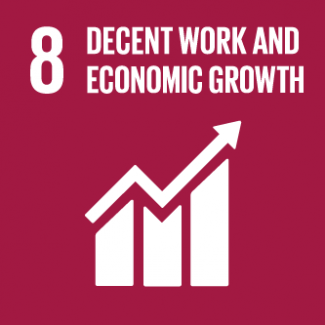
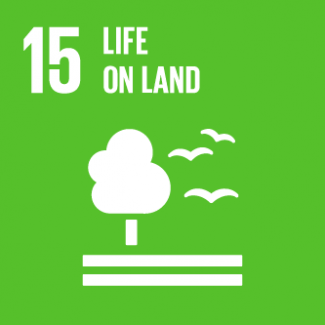
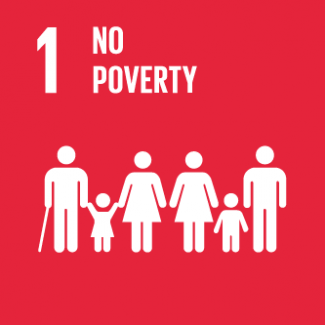
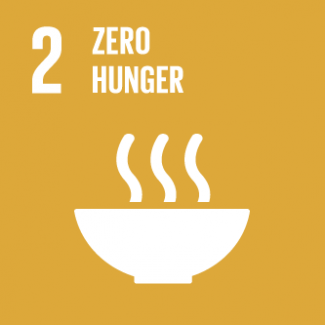
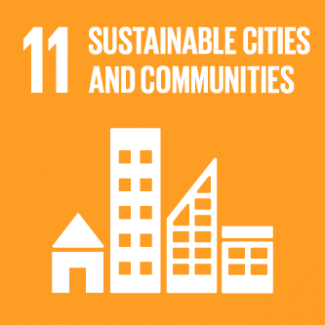
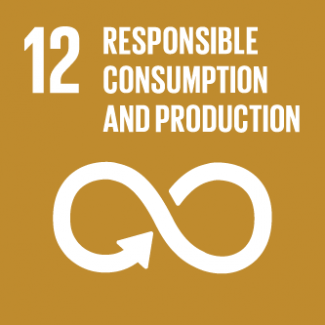
Business Model Description
Renovate rural homesteads with eco-friendly materials and solar solutions, provide immersive farm and nature-based experiences, partner with local producers for sustainable food supply, and reinvest profits in community improvements to strengthen rural economies.
Expected Impact
Agri-tourism enables inclusive rural development by creating jobs, formalizing informal work, and preserving culture through sustainable tourism.
How is this information gathered?
Investment opportunities with potential to contribute to sustainable development are based on country-level SDG Investor Maps.
Disclaimer
UNDP, the Private Finance for the SDGs, and their affiliates (collectively “UNDP”) do not seek or solicit investment for programmes, projects, or opportunities described on this site (collectively “Programmes”) or any other Programmes, and nothing on this page should constitute a solicitation for investment. The actors listed on this site are not partners of UNDP, and their inclusion should not be construed as an endorsement or recommendation by UNDP for any relationship or investment.
The descriptions on this page are provided for informational purposes only. Only companies and enterprises that appear under the case study tab have been validated and vetted through UNDP programmes such as the Growth Stage Impact Ventures (GSIV), Business Call to Action (BCtA), or through other UN agencies. Even then, under no circumstances should their appearance on this website be construed as an endorsement for any relationship or investment. UNDP assumes no liability for investment losses directly or indirectly resulting from recommendations made, implied, or inferred by its research. Likewise, UNDP assumes no claim to investment gains directly or indirectly resulting from trading profits, investment management, or advisory fees obtained by following investment recommendations made, implied, or inferred by its research.
Investment involves risk, and all investments should be made with the supervision of a professional investment manager or advisor. The materials on the website are not an offer to sell or a solicitation of an offer to buy any investment, security, or commodity, nor shall any security be offered or sold to any person, in any jurisdiction in which such offer would be unlawful under the securities laws of such jurisdiction.
Country & Regions
- Republic of North Macedonia: Eastern
- Republic of North Macedonia: Northeastern
- Republic of North Macedonia: Pelagonia
- Republic of North Macedonia: Southwestern
- Republic of North Macedonia: Vardar
Sector Classification
Services
Development need
Rural areas in the Republic of North Macedonia suffer from outmigration and limited infrastructure, weakening agriculture and tourism potential. Strengthening local economies through sustainable farming, rural tourism, and improved services is critical to reduce inequalities, boost incomes, and ensure inclusive growth. (1, 2)
Policy priority
The National Development Strategy 2024–2044 and the Regional Development Strategy 2021–2031 emphasize balanced regional growth and sustainability. Key aims include modernizing agriculture, expanding eco-friendly tourism, and upgrading infrastructure to foster inclusive development. (1, 2)
Gender inequalities and marginalization issues
In many rural communities, women lack equitable access to land, finance, and training. Minority groups also face cultural barriers. Targeted interventions—such as financial incentives, skills programs, and inclusive policy frameworks—are vital to foster equality and broaden participation. (2)
Investment opportunities introduction
Potential lies in eco-friendly agritech, value-added agriculture, and agritourism. Upgrading rural infrastructure, digital connectivity, and SME support can attract investors. These efforts diversify incomes, create jobs, and advance sustainable rural economies. (3)
Key bottlenecks introduction
Challenges include weak rural infrastructure, limited financing options, and fragmented supply chains. Inadequate human capital, policy gaps, and climate vulnerabilities also constrain growth. Overcoming these requires strong public-private collaboration, good governance, and targeted capacity-building. (1, 2, 3)
Consumer Services
Development need
Rural tourism in North Macedonia still has limited lodging capacity, outdated facilities, and insufficient training for hospitality staff. Strengthening accommodations, promoting eco-friendly standards, and diversifying offerings (e.g., cultural or farm stays) are essential to attract more visitors, create jobs, and revitalize rural economies. (3)
Policy priority
National and regional development plans highlight sustainable tourism as a pillar for balanced growth. Upgrading hotels and rural lodgings, improving service quality, and encouraging energy-efficient, eco-certified practices are key. Policies focus on enhancing digital infrastructure, streamlining permits, and training the workforce to ensure a inclusive tourism sector. (1, 2, 3)
Gender inequalities and marginalization issues
Women often handle most hospitality tasks yet face limited ownership or management roles, while youth and ethnic minorities have restricted access to resources. Targeted policies—e.g., grants for female- or minority-owned SMEs, vocational training, and inclusive local governance—are critical to reduce disparities and empower underrepresented groups in rural tourism. (10)
Investment opportunities introduction
Demand for boutique and eco-friendly lodgings is rising. Investors can renovate heritage buildings into guesthouses, integrate digital booking systems, and partner with local suppliers for unique experiences. Existing government incentives, EU funding, and diaspora engagement all present pathways to modernize hospitality services and boost rural incomes. (4,5)
Key bottlenecks introduction
Major constraints include limited lodging facilities, poor transport and utilities infrastructure, and fragmented marketing efforts. Seasonality and a shortage of skilled personnel further hinder growth. Overcoming these challenges requires strong coordination between government, private sector, and local communities, plus enhanced training and financing mechanisms. (29)
Professional and Commercial Services
Pipeline Opportunity
Rural guesthouse upgrades with eco-friendly amenities
Renovate rural homesteads with eco-friendly materials and solar solutions, provide immersive farm and nature-based experiences, partner with local producers for sustainable food supply, and reinvest profits in community improvements to strengthen rural economies.
Business Case
Market Size and Environment
USD 50 million - USD 100 million
300 rural homesteads refurbished with solar solutions, boosting local tourism capacity.
OECD forecasts a 5–10% annual growth for rural tourism through 2030, suggesting a USD 50–100 million potential in eco-friendly lodgings and services for emerging markets in Southeastern Europe. (13, 5)
Eurostat data show that rural areas accounted for nearly 40% of overnight tourist stays in Europe (2021). (29)
Indicative Return
5% - 10%
A 2025 agrotoruism report notes that well-run agritourism farms can achieve gross profit margins through to 2029 of 7.7%. (14)
Investment Timeframe
Short Term (0–5 years)
Renovations and eco-upgrades typically need 2–3 years for completion, plus 2–4 years to stabilize occupancy. Business model data show payback in short term horizon. (15)
Ticket Size
< USD 500,000
Market Risks & Scale Obstacles
Capital - Limited Investor Interest
Capital - Requires Subsidy
Impact Case
Sustainable Development Need
Rural depopulation is accelerating in Southeast Europe. Agri-tourism can create jobs, increase youth retention, and revitalize traditional farming communities that face economic decline and migration. (30)
Small-scale farms often struggle financially. By integrating tourism, they diversify income, preserve biodiversity, and protect landscapes from unsustainable development or abandonment. (31)
Traditional crafts and food heritage are at risk of being lost. Agri-tourism helps preserve cultural identity by creating market demand for local skills, cuisine, and storytelling in rural areas. (32)
Gender & Marginalisation
Women in rural areas often face limited access to land, finance, and leadership roles. Agri-tourism empowers them through direct income opportunities, local product sales, and cultural hosting roles. (18, 19)
Youth and elderly in remote villages are marginalized due to lack of jobs and infrastructure. Agri-tourism creates intergenerational engagement by connecting traditional knowledge with modern enterprise. (20)
Expected Development Outcome
Preservation of cultural heritage and local ecosystems via sustainable land use, traditional farming, and crafts integrated into tourism experiences that raise awareness among visitors. (22)
Strengthened social cohesion as smallholders and marginalized groups collaborate in cooperatives, improving market access, collective bargaining, and shared rural infrastructure. (23)
Formalization of rural tourism businesses encourages tax registration, legal employment, and access to finance. Agri-tourism reduces informal activity by integrating local producers into official economic systems. (25)
Gender & Marginalisation
Increased rural employment and income diversification for women and youth through agri-tourism services and local product sales, reducing migration and revitalizing remote communities. (21)
Empowerment of rural women through leadership in farm-stay tourism, hospitality, and craft enterprises, enhancing decision-making roles and access to income streams traditionally dominated by men. (24)
Primary SDGs addressed

8.9.1 Tourism direct GDP as a proportion of total GDP and in growth rate
North Macedonia's Tourism Revenue reached 253 USD mn in Dec 2020, compared with 401 USD mn in the previous year. (26)
Increase tourism’s direct contribution to GDP from 5.3% (2022) to 8% by 2030, with at least 30% of growth driven by rural and agri-tourism, supported by infrastructure investment and SME development. (3)

15.a.1 (a) Official development assistance on conservation and sustainable use of biodiversity; and (b) revenue generated and finance mobilized from biodiversity-relevant economic instruments
Through EU IPARD II and national grants, North Macedonia mobilized over €16 million (2014–2020) for rural tourism and conservation. These funds support biodiversity through eco-farming, organic production, and nature-based tourism. (33)
By 2030, aim to double public and donor funding for biodiversity-related rural tourism, reaching €30M cumulatively, through expanded IPARD support, eco-certification schemes, and green tourism incentives.

1.1.1 Proportion of the population living below the international poverty line by sex, age, employment status and geographic location (urban/rural)
As of 2020, 21.8% of the population in rural North Macedonia lived below the national poverty threshold . Agri-tourism provides supplemental income and self-employment for women, youth, and smallholders. (34)
Reduce the rural poverty rate from 21.8% (2021) to below 15% by 2030, through targeted agri-tourism and local enterprise development programs, particularly benefiting women, youth, and minority communities. (47)
Secondary SDGs addressed



Directly impacted stakeholders
People
Gender inequality and/or marginalization
Planet
Corporates
Public sector
Indirectly impacted stakeholders
People
Gender inequality and/or marginalization
Planet
Corporates
Public sector
Outcome Risks
Increased tourism may strain local resources (water, waste, energy) and lead to environmental degradation if growth is not matched with sustainable infrastructure and management practices. (27)
Higher land and property values driven by tourism demand may price out locals, especially younger or lower-income residents, contributing to inequality or forced relocation.
Commercialization of local traditions could lead to cultural dilution or loss of authenticity if not managed in collaboration with communities, undermining the very appeal of agri-tourism.
Seasonal income from tourism may create instability for workers, with few protections or benefits in off-seasons, discouraging long-term youth engagement in rural careers.
Gender inequality and/or marginalization risk: Without inclusive planning, women may remain in informal roles or be excluded from ownership, reinforcing existing social, and economic disparities.
Impact Risks
A decline in tourism demand resulting from economic instability may hinder the realization of projected income streams, potentially leading to financial vulnerability within rural communities.
Failure to train and support farmers in sustainable practices may result in minimal environmental benefits, with conventional farming continuing to harm biodiversity.
If infrastructure upgrades lag, communities may not fully benefit from increased tourism, weakening local support and reducing potential for long-term impact.
Lack of consistent funding or delayed investments may stall project roll-out, discouraging participation and leaving intended improvements unrealized.
Gender inequality risk: If gender inclusion isn't prioritized, women may be out of formal roles, ownership, training, reinforcing traditional power dynamics and widening gap in rural areas.
Impact Classification
What
Increased rural employment, women’s empowerment, and biodiversity-friendly land use through sustainable agri-tourism initiatives in underserved areas of North Macedonia.
Who
Direct impact on rural households (women, youth, smallholders); indirect benefits to ethnic minorities, informal workers, and local SMEs within the tourism value chain.
Risk
Macroeconomic shocks, weak institutional support, and gender exclusion may prevent intended outcomes, especially for vulnerable groups and underfunded rural communities.
Contribution
Integrated Agri-Tourism and Cultural Experience. Enables structural transformation by linking rural economies to tourism demand, diversifying income sources, and promoting development practices.
How Much
Targeting 30% increase in rural tourism participation by 2030; reduction in rural poverty by 6–8 percentage points; and at least 50% women’s representation in agri-tourism roles. (35)
Impact Thesis
Agri-tourism enables inclusive rural development by creating jobs, formalizing informal work, and preserving culture through sustainable tourism.
Enabling Environment
Policy Environment
National Strategy for Agriculture and Rural Development 2021–2027. Supports diversification of rural economies, including agri-tourism, through IPARD-funded measures to enhance competitiveness, sustainability, and local entrepreneurship. (35)
National Development Strategy 2024-2044. Prioritizes balanced regional growth by harnessing rural tourism and traditional crafts as drivers of inclusive development, aiming to boost local economies, preserve heritage, and reduce disparities between urban and rural areas. (1)
Program for Development of the Tourism Sector for 2024. Prioritizes rural and alternative tourism as engines for inclusive growth, with a focus on digitalization, cultural heritage, and job creation in underserved regions. (36)
Sub Strategy for Development of Active Tourism in the Republic of North Macedonia. Rural and agri-tourism meet the needs of modern travelers for physical activity and nature immersion. Offer authentic experiences in traditional settings, support recreation and well-being, and contribute to sustainable development of rural areas. (37)
National Strategy for Agriculture and Rural Development for the Period 2021-2027. Rural areas in Macedonia have strong potential for rural tourism, yet only 4% of accommodation is located there. Nearly half the country could offer attractive tourism products. (17)
Financial Environment
Financial incentives: IPARD II funds co-finance up to 65% of eligible costs for rural tourism investments, including renovations, equipment, and marketing. National rural development programs also support farm diversification. (27)
Fiscal incentives: Small rural tourism businesses may qualify for reduced profit tax and VAT exemptions on specific services and agricultural inputs under local and national fiscal support schemes. (28)
Other incentives: Grants from the Innovation and Technological Development Fund support digitalization and eco-innovation in rural tourism. Some municipalities offer free land use or infrastructure co-financing. (29)
Regulatory Environment
Law on Tourism and Hospitality. Provides the legal basis for rural tourism operations and licensing, including classification of tourist services, and encourages sustainable and decentralized tourism models. (38)
Law on Craftsmanship. Defines the legal status and registration of traditional crafts. Supports integration of craft production into rural tourism and enables small producers to access formal markets and tourism value chains. (39)
Law on Agriculture and Rural Development. Supports multifunctional use of agricultural land, enabling tourism-related activities on farms. Provides the framework for rural diversification and access to IPARD II funding. (40)
Law on Spatial and Urban Planning: Regulates land use and permits in rural areas, crucial for developing agri-tourism infrastructure. Aligns rural development with sustainability and environmental protection standards. (41)
Law on Environmental Protection: Establishes environmental standards and sustainability principles applicable to rural tourism activities. Ensures that tourism development aligns with biodiversity conservation and eco-friendly practices. (42)
Marketplace Participants
Private Sector
Small-scale farmers, rural guesthouse owners, craft producers, and tourism SMEs form the backbone of the agri-tourism model, offering local services, accommodation, and experiential activities.
Government
Ministry of Agriculture, Forestry and Water Economy and the Ministry of Economy and Labor (Tourism Sector) develop rural tourism strategies, administer IPARD funds, and provide legal frameworks.
Multilaterals
FAO, UNDP, and the EU (through IPARD and LEADER) support rural tourism through funding, technical assistance, and capacity-building for sustainable agriculture and local development.
Non-Profit
NGOs support community-led tourism, promote traditional food, and empower women and youth in rural areas.
Public-Private Partnership
Partnerships between municipalities, donor-funded programs, and local businesses facilitate infrastructure upgrades, tourism branding, and joint marketing initiatives across rural regions.
Target Locations
Republic of North Macedonia: Eastern
Republic of North Macedonia: Northeastern
Republic of North Macedonia: Pelagonia
Republic of North Macedonia: Southwestern
Republic of North Macedonia: Vardar
References
- (1) National Development Strategy of North Macedonia 2024-2044
- (2) Strategy for Regional development of North Macedonia 2021-2031
- (3) National Development Strategy 2024-2044, Tourism "4) Unused potential of rural turism in country (2018), Project: ""STRATEGIC DEVELOPMENT OF RURAL TOURISM – A BASIS FOR COMPLEMENTARY CONNECTION AND SUPPLEMENTATION OF INDUSTRIAL POLICY AND THE SUSTAINABLE DEVELOPMENT OF THE COUNTRY"", Founded by EU"
- (5) Shajn, N.; Finer, K.; (2023) Rural Turism, EPRS | European Parliamentary ResearchService
- (6) Albania: Investing in agriturism as an engine for shared prosperity (2024). UNDP. Link: https://albania.un.org/en/264242-albania-investing-agritourism-engine-shared-prosperity
- (7) Sulaj, A.; Terpollari, A.; Kondi, B.; (2022), Villages' Revitalization Supports a Sustainable Agritourism in Albania, Journalof Environmental Management and Tourism, (Volume XIII, Spring), 2(58): 546-560.
- (8) Cvijanovic, D.; (2019), Support to Rural Tourism Development in Vojvodina by Local Population, Knowledge - International Journal, Vol.41.1.
- (9) Donev, A.; Adventure Tourism Industry Assessment, (2018), Tourism Development and Promotion Project, Regional Cooperation Council, Founded by European Union
- (10) Mujcinocix, A. et al.;The Role of Women in the Rural Areas in The Western Balkans (2024), GIZ "11) Karatzoglou, B. Spilanis, I.; (2008). Sustainable Tourism in Greek islands: the Integration of Activity-Based Environmental Management with a Destination Environmental Scorecard Based on the Adaptive Resource Management Paradigm. Business Strategy and the Environment"
- (12) Rontos, K., et. al.; (2012), Islands and Tourism Development: A Viewpoint of Tourism Stakeholders of Lesvos Island, In book: Visions for Global Tourism Industry - Creating and Sustaining Competitive Strategies
- (13) OECD, Managing tourism development for sustainable and inclusive revocery, Polixy Paper, 2021
- (14) Agritourism Global Market Report (2025), The Business Research Company
- (15) https://sdgprivatefinance.undp.org/leveraging-capital/sdg-investor-platform/agro-tourism-0
- (16) Кредитирање во земјоделстовот - состојби и перспективи, Center for Economic Analysis CEA (2013)
- (17) National Strategy for Agriculture and Rural Development of North Macedonia 2021-2027, Ministry of Agriculture, Forestry & Water of the Republic of Macedonia
- (18) Interview: "By engaging in rural tourism, women are directly involved, and all income from both accommodation and food marketing goes to them", Un Women, Internet source: https://eca.unwomen.org/en/stories/interview/2024/05/interview-by-engaging-in-rural-tourism-women-are-directly-involved-and-all-income-from-both-accommodation-and-food-marketing-goes-to-them?utm_source=chatgpt.com.
- (19) Sulaj, A., Themelko, H.; Agritourism as a Pathway to Women's Empowerment: Insights From Rural Albania, European Countryside, Vol. 16 (2024)
- (20) Study on the Situation and the Needs of Rural Youth in the Western Balkan Countries and Territories, Link: https://seerural.org/wp-content/uploads/2025/01/RURAL-YOUTH.pdf "21) Tola, A.; Rural tourism effects on youth employment, In Kelemen-Erdos A., Feher-Polgar, P., Popovics A., (eds): FIKUSZ 2021 Proceedings (pdf) ISBN 978-963-449-274- 0, Obuda University, Keleti Károly Faculty of Business and Management, 252 p. pp. 92-107., 16 p. http://kgk.uni-obuda.hu/fikusz"
- (22) Shahini, Ermir, Eugen Skuraj, Fatbardh Sallaku, and Shpend Shahini. "Recreational opportunities through agritourism increases relationships within urban and rural communities in Western Balkan societies." Review of Economics and Finance 20, no. 1 (2022): 283-287.
- (23) Stanić Jovanović, Sara, Božo Ilić, and Nevena Miletović. "Is Rural Tourism a Chance for Development and Revitalisation of Aranđelovac Municipality?." (2024): 95.
- (24) Petrović, Marko D., Aleksandra Vujko, Tamara Gajić, Darko B. Vuković, Milan Radovanović, Jasmina M. Jovanović, and Natalia Vuković. "Tourism as an approach to sustainable rural development in post-socialist countries: A comparative study of Serbia and Slovenia." Sustainability 10, no. 1 (2017): 54.
- (25) GJOKUTAJ, Eduart. "Albania: The impact of economic and fiscal policy in the agricultural sector." ECONOMICUS 20, no. 1 (2021): 7-27.
- (26) North Macedonia Tourism Revenue CEIC DataBase
- (27) Kazlouski, Vital, Uladzimir Ganski, Alena Platonenka, Sviatlana Vitun, and Ina Sabalenka. "Sustainable development modeling of agritourism clusters." Management Theory and Studies for Rural Business and Infrastructure Development 42, no. 2 (2020): 118-127. "27) The Government of the Republic of North Macedonia - Agency for Financial Support of the Agriculture and Rural Development"
- (28) https://finance.gov.mk/wp-content/uploads/2017/01/ruralni_razvojni_zoni.pdf
- (28) https://ipard.gov.mk/en/home/
- (29) https://ec.europa.eu/eurostat/statistics-explained/index.php?title=Tourism_statistics_-_annual_results_for_the_accommodation_sector "29) Предлог Национална стратегија за одржлив развој во Република Македонија ДЕЛ II: Стратешка основа и анализа (2009 - 2030). Проект финансиран од страна на Sida, во соработка со Министерството за животна средина и просторно планирање на Република Македонија"
- (30) European Commission (2023) Understanding depopulation in rural areas. Workshop 2: Adressing the challenge of depopulation in rural areas. Link: https://innovative-sustainable-economy.interreg-euro-med.eu/wp-content/uploads/sites/2/fernando-merida-martin.pdf "31) Ivona, Antonietta (Ed.) (2021) : Sustainability of Rural Tourism and Promotion of Local Development, ISBN 978-3-0365-1947-0, MDPI, Basel, https://doi.org/10.3390/books978-3-0365-1947-0"
- (32) Adie, A. Bailey et al. (2025). Cultural and Creative Tourism in Rural and Remote Areas: A review of the literature, Project: 101132454 — CROCUS — HORIZON-CL2-2023-HERITAGE-01 "33) THE REPUBLIC OF NORTH MACEDONIA EU INSTRUMENT FOR PRE-ACCESSION (IPA) RURAL DEVELOPMENT PROGRAMME 2014-2020"
- (34)https://www.stat.gov.mk/pdf/2022/4.1.22.40_mk.pdf
- (35) Национална стратегија за земјоделството и руралниот развој за периодот 2021-2027 година. Министерство за земјоделство, шумарство и водостопанство. Република Северна Македонија
- (36) Program for Development of the Tourism Sector for 2024,
- (37) SUB-STRATEGY FOR THE DEVELOPMENT OF ACTIVE TOURISM IN THE REPUBLIC OF MACEDONIA
- (38) LAW ON CATERING ACTIVITY (Official Gazette of the Republic of Macedonia No. 62/04, 89/08, 115/10 and 53/11)
- (39) Law on Craftsmanship
- (40) Law on Agriculture and Rural Development, Official Gazette of the Republic of Macedonia No. 65/23
- (41) LAW ON SPATIAL AND URBAN PLANNING, Official Gazette of the Republic of Macedonia, No. 199 of 30.12.2014
- (42) LAW ON THE PROTECTION AND PROMOTION OF THE ENVIRONMENT AND NATURE
- (43) Eastern Planning Region Development Program 2021-2026, Center for Development of the Eastern Planning Region
- (44) Program for the Development of the Northeastern Planning Region 2021-2026, Center for the Development of the Northeastern Planning Region
- (45) Program for the Development of the Pelagonian Planning Region 2021-2026, Center for the Development of the Pelagonian Planning Region
- (46) Program for the Development of the Southwestern Planning Region 2021-2026, Center for the Development of the Southwestern Planning Region
- (47) Program for the Development of the Vardar Planning Region 2021-2026, Center for the Development of the Vardar Planning Region
- (48) National Development Strategy of the Republic of North Macedonia 2024-2044















